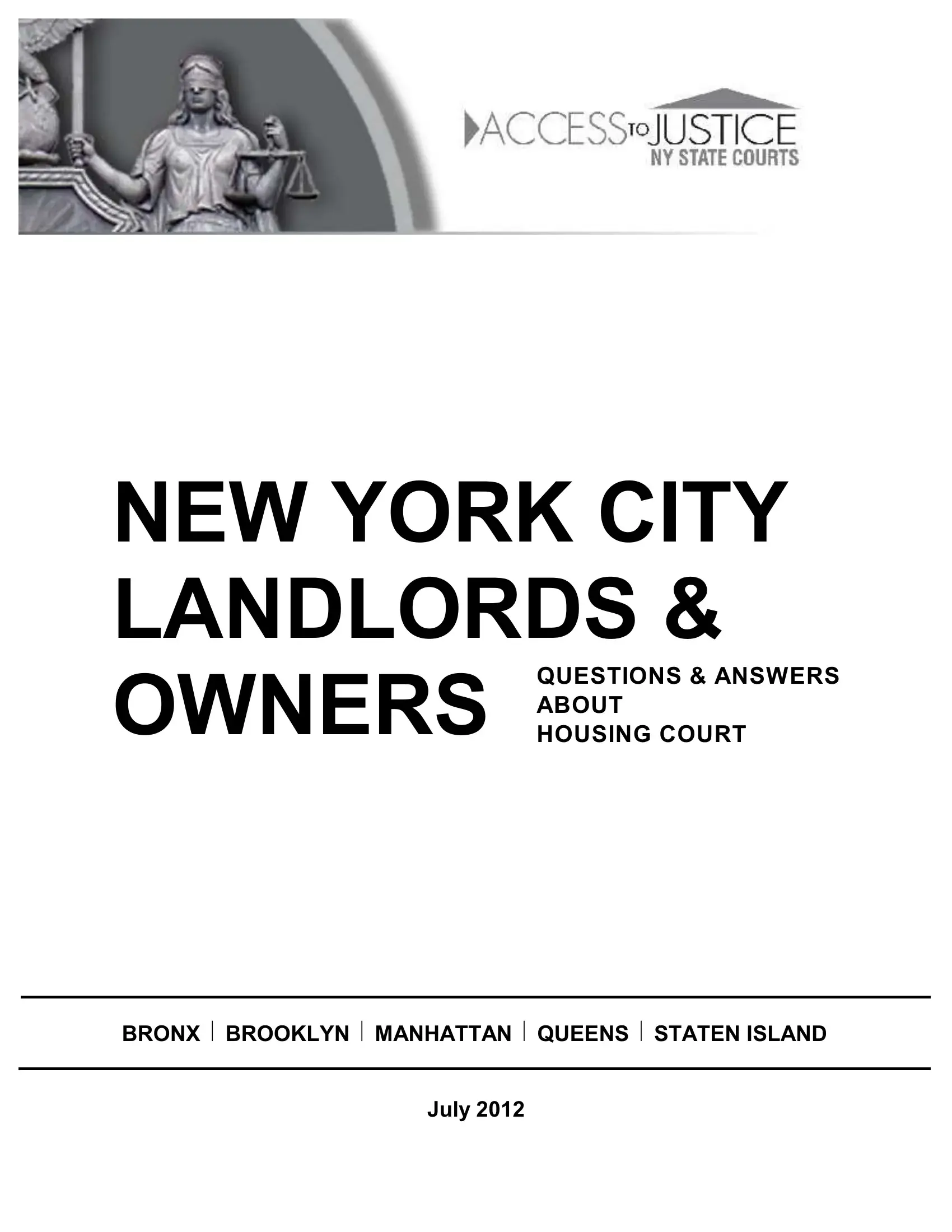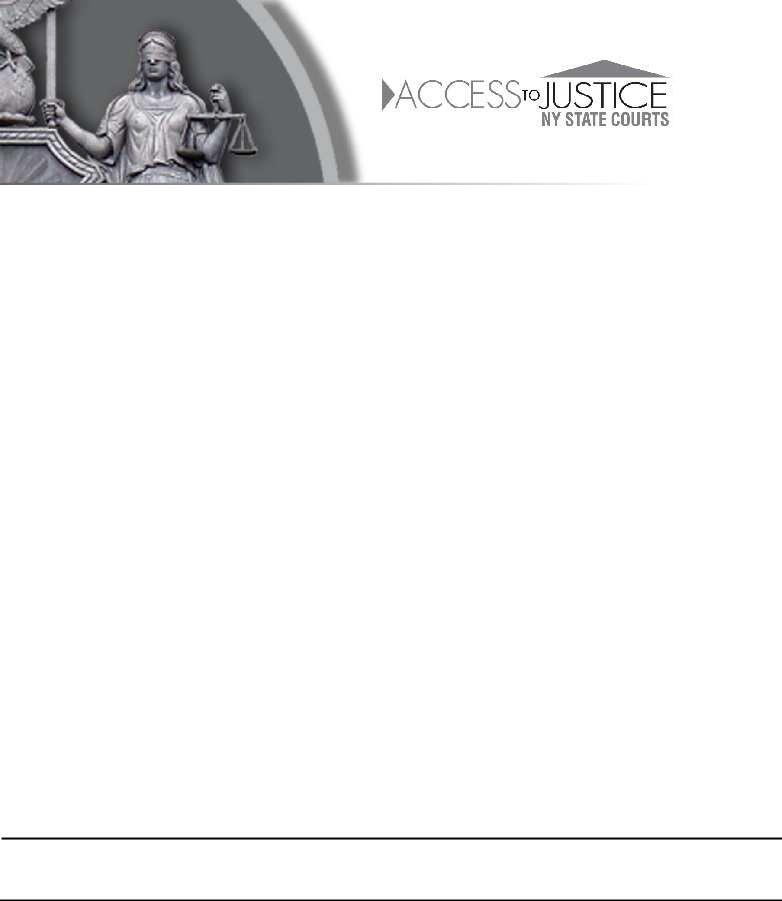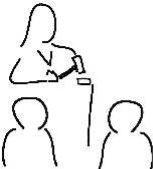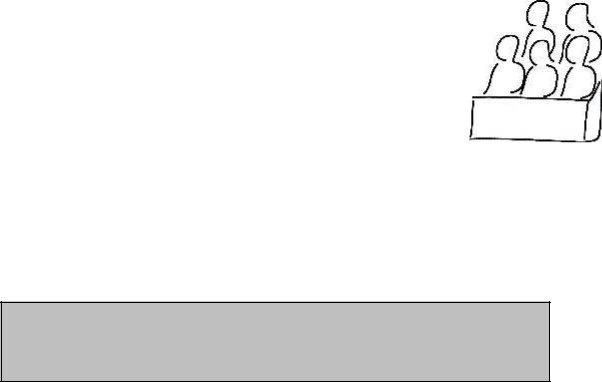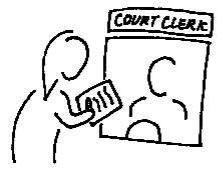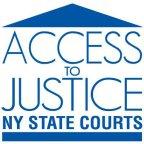When working in the online tool for PDF editing by FormsPal, you can easily fill in or alter landlord guide nyc right here. FormsPal development team is always working to develop the tool and insure that it is even better for clients with its extensive features. Unlock an ceaselessly progressive experience now - explore and uncover new possibilities as you go! With some simple steps, you'll be able to start your PDF journey:
Step 1: Click on the "Get Form" button at the top of this webpage to get into our PDF tool.
Step 2: Once you access the file editor, you'll notice the form prepared to be filled in. In addition to filling out various blank fields, you might also perform many other actions with the file, namely adding any textual content, changing the initial textual content, inserting graphics, signing the form, and much more.
It is easy to complete the form using out practical guide! Here's what you should do:
1. To start with, once completing the landlord guide nyc, begin with the area that includes the subsequent blanks:
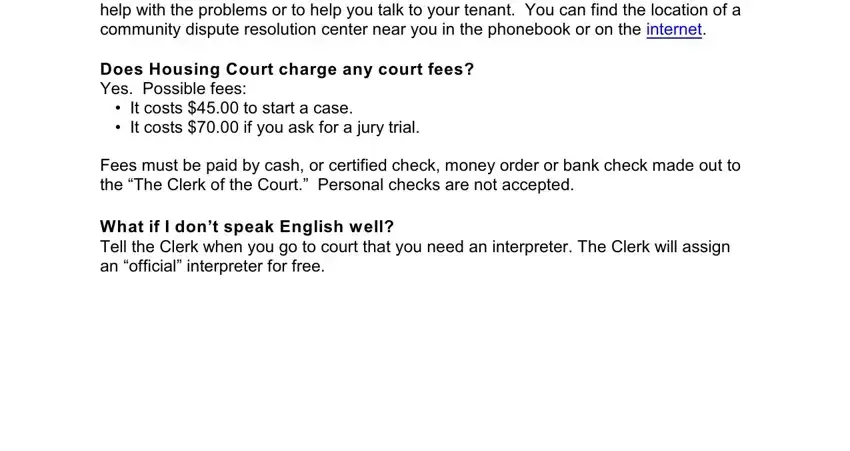
2. Now that the last section is complete, you need to include the necessary details in Where do I find more information, and If you start a case in Housing so that you can proceed further.
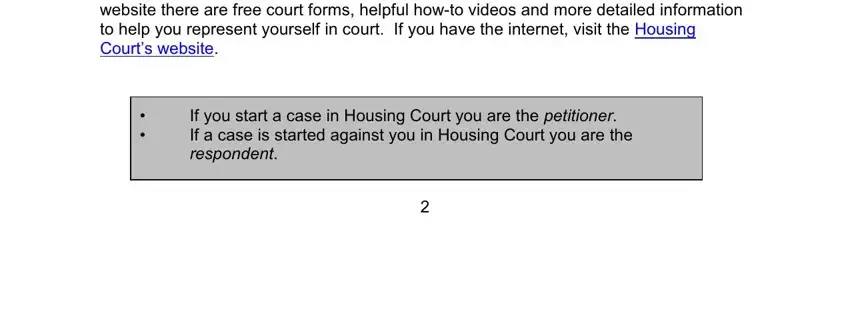
3. This next step is related to If the tenants home is not rent - complete all these blanks.

4. Filling in If the tenants home is not rent, If there is more than one person, Who do I list as the Petitioner in, A tenant that sublets the home can, Other people like a friend or, and The person listed as the is essential in this part - you'll want to invest some time and fill in every blank!
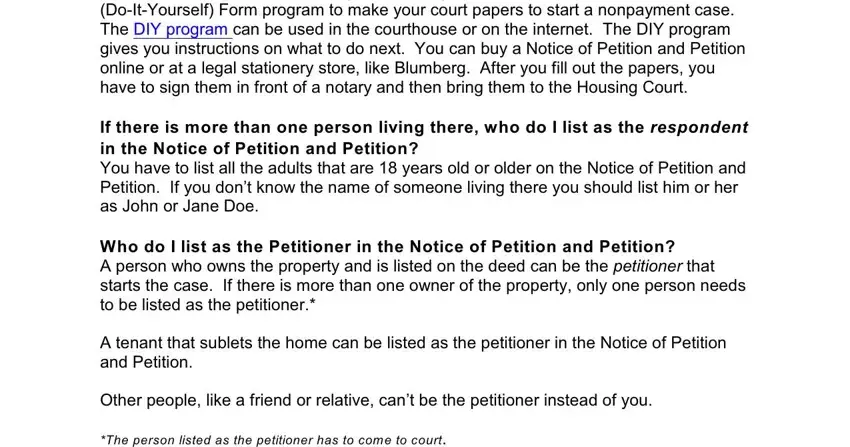
5. When you come near to the end of the file, there are actually several more points to undertake. Specifically, If the building is a multiple, Where do I start the case The case, What happens when I go to court to, How fast a court date can I choose, cant be sooner than days away, Important Choose a date when you, The court date m ust be between, and Is there a special way that the should be filled out.
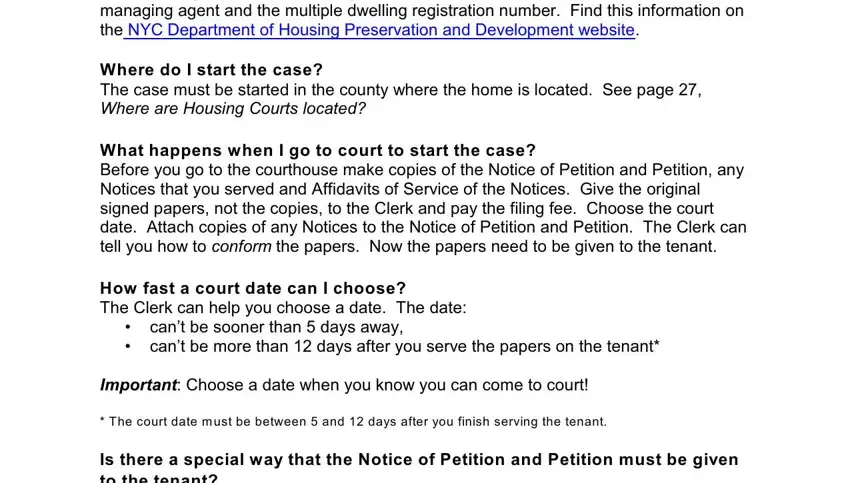
As for If the building is a multiple and cant be sooner than days away, be sure that you double-check them in this current part. Those two are the key ones in this file.
Step 3: Soon after looking through the filled out blanks, click "Done" and you're done and dusted! Right after getting a7-day free trial account with us, you will be able to download landlord guide nyc or email it right off. The PDF form will also be readily available in your personal cabinet with your every single edit. FormsPal provides risk-free document editing without personal information recording or any type of sharing. Feel safe knowing that your details are in good hands here!
